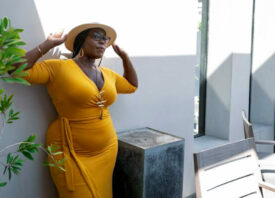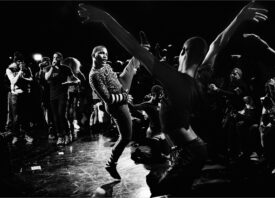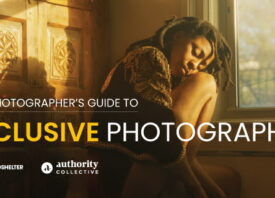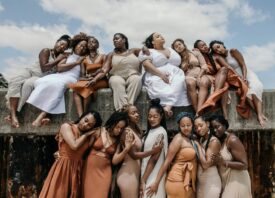Search this site
Powerful Portraits Made During the Pandemic, the Black Lives Matter Uprising, and a Critical Time for American History

We Are Present is a limited edition monograph by Laylah Amatullah Barrayn. Only 350 copies are available.
Laylah Amatullah Barrayn walked into Millennium Cuts almost by chance. She was exploring North Minneapolis, and discovering the barbershop still open (many businesses in the area had closed), she started talking with AJ, a barber and the manager at the shop. AJ told her that George Floyd, who had been murdered by police just days before, had been a client and friend for about four years.
“AJ shared that George Floyd always asked about the well-being of his family and took a genuine interest in his life,” the photographer tells me. “AJ said he would miss those heartfelt conversations.”
That moment appears in Amatullah Barrayn’s historic book We Are Present: 2020 in Portraits, along with many others photographed serendipitously—in some cases, miraculously—during a year of pain, trauma, resilience, and joy. Spanning cities throughout the United States and beyond,* her portraits illuminate a singular time in American and global history, a year shaped by grief but also defined by hope.
Amatullah Barrayn’s mother, who passed away a few years before 2020, was the family photographer. She introduced her daughter to photography, and through her, Amatullah Barrayn learned about the beauty of quiet moments and the importance of collaboration between a photographer and her sitter.
It’s that abiding sense of connection—even and perhaps especially during a period of isolation—runs throughout the book, as we travel from the early days of the pandemic, the protests (with 15 million to 26 million people participating across the country, the Black Lives Matter is likely the largest in US history), the election of Joe Biden and Kamala Harris, and the very first doses of the Covid-19 vaccine.
We Are Present might be about a precise moment in history—the year that changed the world—but it’s also a book that we can and should return to ten, twenty, or a hundred years into the future. Amatullah Barrayn’s portraits invite us to look, revisit, read, and reread. Upon a second viewing of her portrait of AJ at Millennium Cuts, for instance, you might notice the barber’s chair in the foreground. “You feel the presence of Floyd in the chair,” the photographer says.
We asked Amatullah Barrayn to tell us more about some of the portraits in the book. Order your copy today.






All images and captions © Laylah Amatullah Barrayn
*The book spans neighborhoods in Brooklyn, Queens, NYC, Newark, Louisville, Washington DC, Minneapolis, and St. Paul. Two portraits were made outside of the US in Negril, Jamaica.



